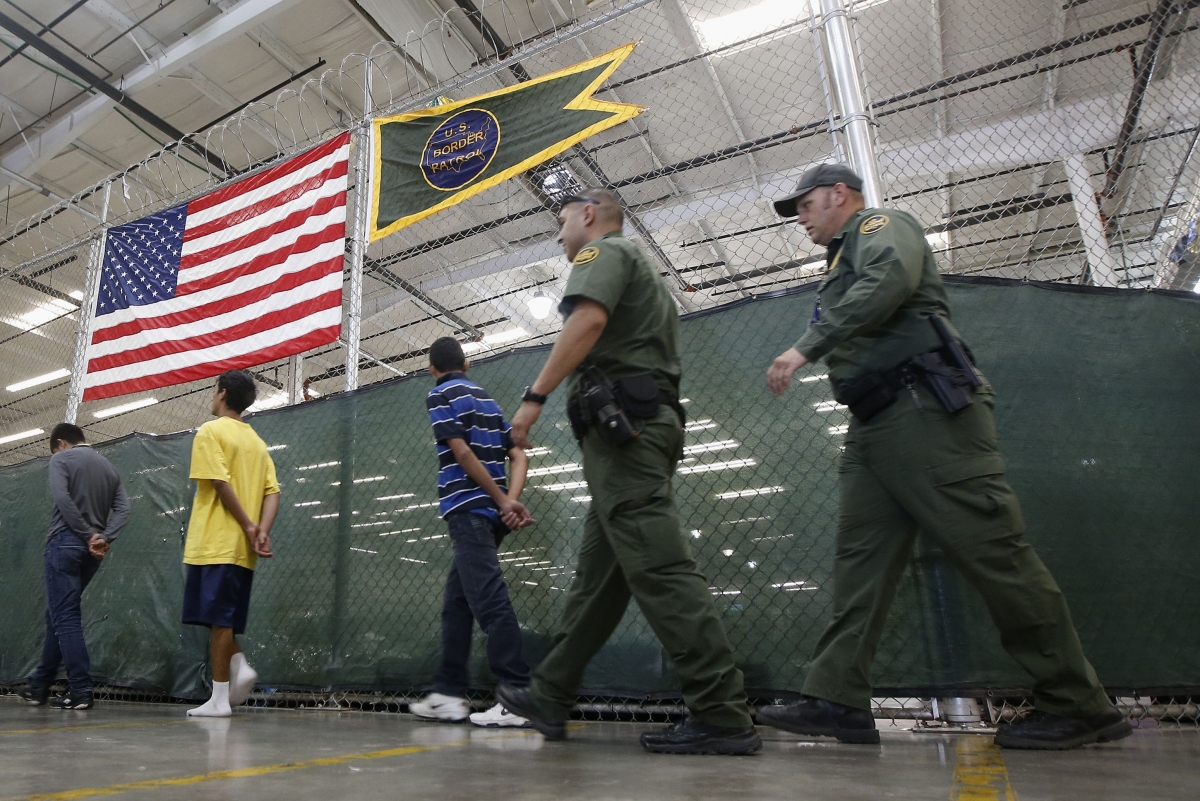Under mounting pressure from lawmakers and immigrant rights groups, Border Patrol officials on Wednesday finally let reporters visit two processing facilities where hundreds of unaccompanied migrant youth are being detained.
Some 900 children are being housed at a former warehouse in Nogales, Arizona, which was recently outfitted to handle an unprecedented surge of mostly Central American child migrants across the US-Mexico border. Another facility in Brownsville, Texas, is holding around 500 children, double its intended capacity. The Los Angeles Times described conditions there as “overcrowded and unsanitary.” CBP is required by law to turn over any migrant children to the Department of Health and Human Services within seventy-two hours of detaining them. Officials at the Nogales and Brownsville facilities told reporters they are struggling to meet this requirement.
Earlier this month, the White House requested $2 billion to handle the surge of migrant youths, which President Obama has declared an “urgent humanitarian situation.” US Customs and Border Protection reports that around 47,000 unaccompanied children have crossed the border since October 1, 2013, nearly double the amount of last year. A majority of the migrant children arrived from Central American countries, seeking refuge from rampant violence or hoping to reconnect with family members already in the states.
CBP officials took reporters on highly controlled tours of the Brownsville and Nogales facilities, in which visitors were prohibited from bringing cellphones and sound recorders, or speaking with any of the children. Only two photographers, one for each facility, were allowed to bring a camera. Here are some of their photos:

Some 900 unaccompanied children are being held at a converted warehouse in Nogales. Border Patrol officials set up the Arizona facility after a similiar processing center in Texas ran out of space. (Reuters/Ross D. Franklin/Pool)

Female detainees sleep in a holding cell. According to The New York Times, children held at the Nogales facility are allowed just forty-five minutes of outdoor time a day. (Reuters/Ross D. Franklin/Pool)

Child detainees are escorted to make phone calls. (AP Photo/Ross D. Franklin, Pool)

Child detainees wait to use a portable restroom, as a World Cup match plays on a suspended television. (AP Photo/Ross D. Franklin, Pool)


